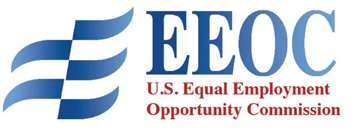Eliminating employment barriers for ex-offenders
By Nisa Islam Muhammad -Staff Writer- | Last updated: Apr 6, 2016 - 1:35:49 PMWhat's your opinion on this article?

|
They have to find homes, jobs and create a life that won’t land them back in jail. One of their first challenges is the job application and one of the major challenges often before they can even get an interview is the check box that asks if applicant’s have a criminal record.
“Employers should look beyond the box,” said Lexer Quamie, Senior Attorney Advisor to Commissioner Charlotte Burrows at the Equal Employment Opportunity Commission. She was speaking at the National Urban League’s State of Black America discussion, “From Reentry to Financial Stability.”

|
“They should consider the age of the offense and what the offense was for. The BMW Manufacturing Plant is a good example of this problem. They had a blanket exclusion of anyone with a criminal record. They terminated a number of employees and job seekers. The EEOC filed suit against them and they lost,” added Ms. Quamie at the March 29 discussion.
BMW will pay a total of $1.6 million to resolve the litigation and two pending charges related to the company’s previous criminal conviction records guidelines that had been filed with EEOC. In addition to monetary relief, BMW will offer employment opportunities to the discharged workers in the suit and up to 90 Black applicants who BMW’s contractor refused to hire based on BMW’s previous conviction records guidelines.
The lawsuit, filed by EEOC’s Charlotte District Office last year, alleged that BMW excluded Black logistics workers from employment at a disproportionate rate when the company’s new logistics contractor applied BMW’s criminal conviction records guidelines to incumbent logistics employees.
According to the EEOC, the company’s criminal conviction records guidelines excluded from employment all persons with convictions in certain categories of crime, regardless of how long ago the employee had been convicted or whether the conviction was for a misdemeanor or felony.
BMW spokeswoman Sky Foster told reporters the company, “believes that it has complied with the letter and spirit of the law and will defend itself against the EEOC’s allegations of race discrimination.
The complaint explained that after the criminal background checks were performed, BMW learned that approximately 100 incumbent logistics workers at the facility, including employees who had worked at there for several years, did not pass the screen. EEOC alleged that 80 percent of the incumbent workers disqualified from employment as a result of applying BMW’s guidelines were Black.
“EEOC has been clear that while a company may choose to use criminal history as a screening device in employment, Title VII requires that when a criminal background screen results in the disproportionate exclusion of African-Americans from job opportunities, the employer must evaluate whether the policy is job related and consistent with a business necessity,” said P. David Lopez, EEOC’s General Counsel.
Successful reentry for returning citizens is everyone’s business. Their success affects not only them but the women they are in relationships with, their children, families and the communities they return to.
April 23-30, is National Reentry Week. “During this week, we are asking the Bureau of Prisons to coordinate reentry events at their facilities across the country—from job fairs, to practice interviews, to mentorship programs, to events for children of incarcerated parents – designed to help prepare inmates for release,” explained U.S. Attorney General Loretta Lynch.
“We have also asked each U.S. Attorney’s Office to coordinate reentry events, including meetings between local reentry stakeholders, reentry court proceedings, employer roundtables or other events designed to raise awareness about the importance of reentry work.”
Ms. Quamie suggests three things employers can do to go ‘beyond the box’.
“Train human resource managers to not discriminate against returning citizens. Eliminate the blanket exclusion of people with criminal records. Look at additional factors and finally develop a narrowly tailored policy about hiring that is geared toward the position.”
The Legal Action Center (LAC) explains that Ban the Box, also called fair chance hiring, and refers to policies that prohibit inquiries into a job applicant’s criminal record until they have an opportunity to introduce themselves and their qualifications for the job.
“Applicants get reviewed on their merits before the employer considers their background,” said Anita Marton, LAC’s Deputy Director and Vice President. “It’s a huge step forward for workers who might otherwise be shut out completely.”
The discussion featured a panel of experts to examine programs and policies aimed at helping at-risk youth maintain on track and stay out of prison and ex-offenders find a path to financial security.
In addition to Ms. Quamie, panelists included, Broderick Johnson, assistant to President Barack Obama and chair of the My Brother’s Keeper Task Force, David Shapiro, CEO of MENTOR: The National Mentoring Partnership, Kerry Sullivan, president of Bank of America Charitable Foundation, Cy Richardson of the National Urban League, Shari Runner, president and CEO of the Chicago Urban League. The program was moderated ty April Ryan, White House Correspondent for American Urban Radio Networks.
INSIDE STORIES AND REVIEWS
-
-
About Harriett ... and the Negro Hollywood Road Show
By Rabiah Muhammad, Guest Columnist » Full Story -
Skepticism greets Jay-Z, NFL talk of inspiring change
By Bryan 18X Crawford and Richard B. Muhammad The Final Call Newspaper @TheFinalCall » Full Story -
The painful problem of Black girls and suicide
By Charlene Muhammad -National Correspondent- » Full Story -
Exploitation of Innocence - Report: Perceptions, policies hurting Black girls
By Charlene Muhammad -National Correspondent- » Full Story -
Big Ballin: Big ideas fuel a father’s Big Baller Brand and brash business sense
By Bryan Crawford -Contributing Writer- » Full Story






 Click Here Stay Connected!
Click Here Stay Connected!








